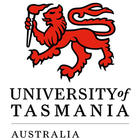Bachelor of Design
Bachelor of Design
This degree invites you to take part in the redefinition of what design means for Tasmania. Our goal is to embed design within the working fabric of the state, to realise a design-led Tasmania. We believe that design expands beyond objects and interfaces, to interactions and systems. With renowned designers,…
Categories
COURSE DESCRIPTION
This degree invites you to take part in the redefinition of what design means for Tasmania. Our goal is to embed design within the working fabric of the state, to realise a design-led Tasmania. We believe that design expands beyond objects and interfaces, to interactions and systems. With renowned designers, creative people, inspiring places and events on your doorstep, Tasmania is the ideal place to study design.
Design permeates every aspect of our lives, we embrace the complexity that it entails. Our design courses will expand your understanding of the world as you learn how to create positive impacts through design. Discover how to inspire others to tell their stories, learn to visualise complex information and data, undertake research and prototyping to meet community needs, or design events and experiences that inspire those around you. The Bachelor of Design offers the greatest flexibility, with the opportunity to take up to three complete design streams, a second major from another discipline, or even a double degree.
Core Design Studio units emphasise hands-on learning through collaboration with peers, designers and external stakeholders and the creative development and application of knowledge and skills from your selected design streams in a variety of contexts and project briefs.
Combined with design thinking, visualisation and knowledge of design history and ethics, and the opportunity to develop your own projects in the final year, you will graduate with transferable skills that open diverse career pathways in a huge range of industries. The Bachelor of Design also offers a pathway to post-graduate study through Honours and PhD.
Course objectives
As a designer, you see and understand the needs and opportunities for individuals, communities and businesses to thrive, by designing the transitions for local and global resilience. You’ll learn to design for positive social and environmental outcomes as part of creative livelihoods – not as trade-offs.
Graduates of the Bachelor of Design have the skills, knowledge and experience to step into roles in both established and emerging creative industries or pursue their own entrepreneurial activities. This core knowledge crosses industries and technical skillsets, enabling you to adapt to the ever-evolving design industry. Combined with the significant industry experience, networking opportunities, and range of technical skills you can choose from, you can be prepared to apply your design skills and creative knowledge wherever your interests take you. If you are ambitious yet detail oriented, passionate about contributing to future solutions that make our world a better place to live and work, this is for you.
Career outcomes
As well as traditional design disciplines such as graphic design, furniture and product design, and brand design there are a wealth of career options in design, along with opportunities to become an embedded creative in a wide range of industries. Here are a just a few opportunities.
Interaction Design, Digital Product Design, Exhibition Design.
Learning Outcomes:
Evaluate and apply design concepts, principles, theories, and practices to develop, interpret and communicate ideas and information.
Justify design propositions in relation to disciplinary and extra-disciplinary knowledge through research, critical analysis and synthesis of information.
Generate and refine design propositions through iterative processes of speculation and experimentation employing a range of techniques and material explorations.
Communicate and co-create by evaluating and applying techniques in design communication and in negotiation, collaboration and critique.
Engage in ethical and professional conduct by anticipating and inter-relating the social and environmental implications of design practices.
REQUIREMENTS
Admission to undergraduate courses at the University of Tasmania requires the completion of qualifications equivalent to a 12th year of education in Australia.
You can also meet the General Entry Requirement for this course with the following qualifications or prior studies:
Completion of an equivalent AQF Certificate IV or above
Complete or incomplete (minimum 25 credit points) of previous tertiary study at Bachelor level or higher
English language test scores: IELTS (Academic) – 6.0 (no individual band less than 5.5); TOEFL (iBT) – 72 (no skill below: Reading 10; Listening 9; Speaking 16; Writing 19); PTE Academic – 50 with no score lower than 42; UTAS English for Academic Purposes – EAP2 – 60% (no individual score less than 55%); Cambridge English C1 Advanced or B2 First – 169 with no less than 162 in any skill; Australian Education Management Group (AEMG) DEP EAP2 – Minimum overall score of 70% and no section score of less than 65%.
EDUCATIONAL INSTITUTION
The University of Tasmania was officially founded on 1st January 1890 and is located at Sandy Bay, Tasmania. In addition to the main campus at Sandy Bay, it also operates out of the Newnham Campus and the Cradle Coast Campus. The most popular courses offered are the environmental studies that include wilderness management, marine sciences and indigenous studies in Tasmanian literature. Other unconventional courses include agriculture development, studies on the community and population and ocean study programs. The university also comprises of a Music Conservatorium, Art school and a School of Clinical studies.

